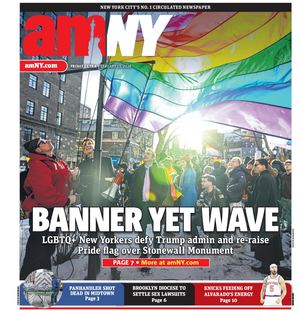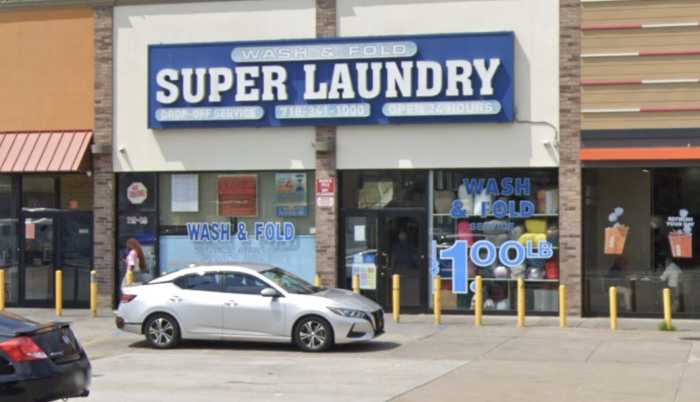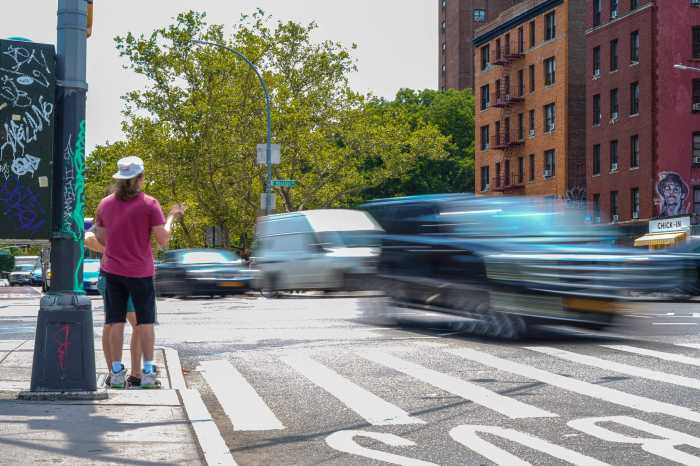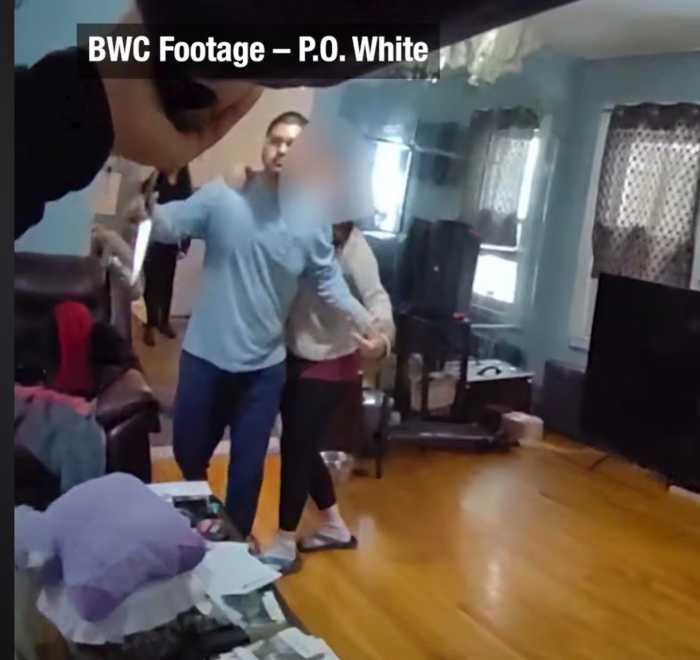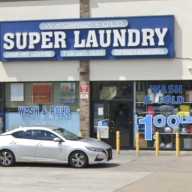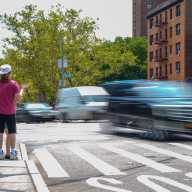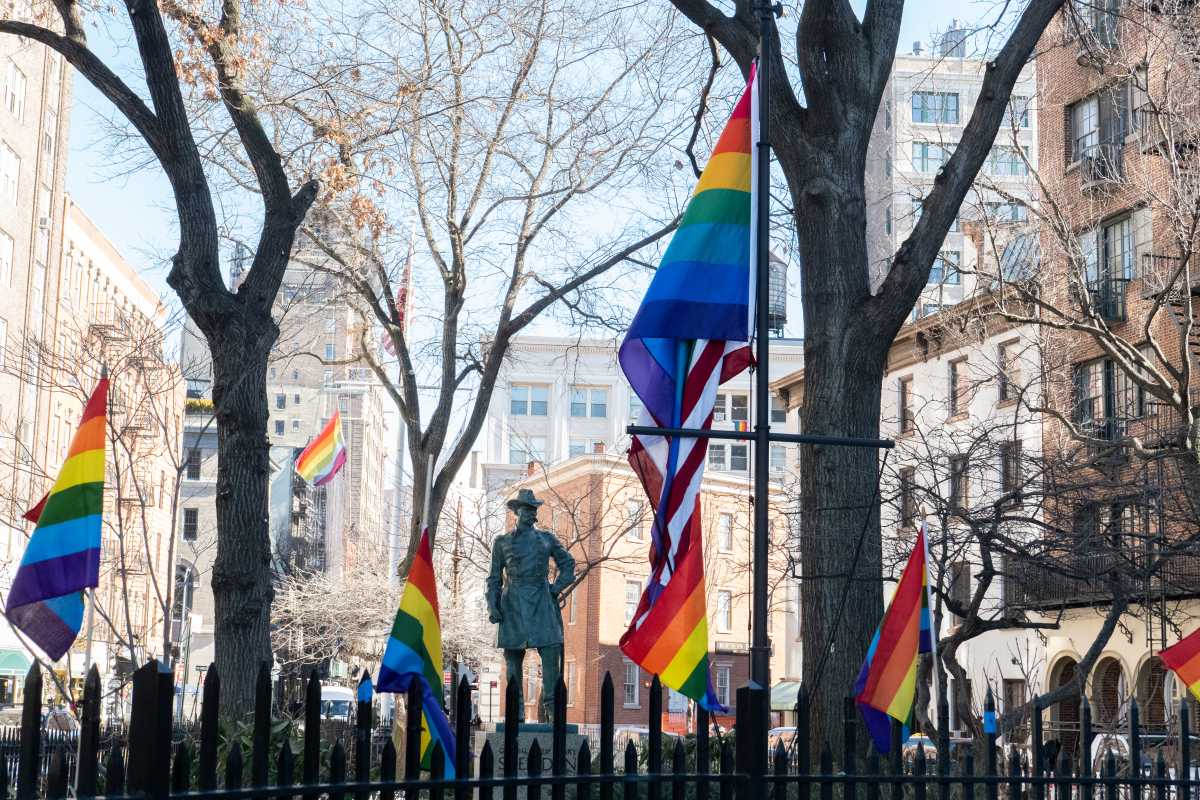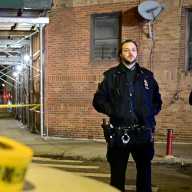New Yorkers caught with small amounts of marijuana will be issued a summons and not arrested, Police Commissioner Bill Bratton said yesterday, the latest in a series of efforts to improve the heavily criticized department.
Under the new policy, which goes into effect on Nov. 19, most cases of people found with 25 grams or less of marijuana in open view will get a summons, Bratton said at a news conference at police headquarters.
The hope is to cut down on what Mayor Bill de Blasio called “unnecessary arrests” for low-level offenses, which he said “disproportionately” affects the black and Latino communities.
“The law is a law, but what we’re trying to do is approach the enforcement of the law in a smarter way,” de Blasio said. “What we’re avoiding is unnecessary arrests and, in the process, giving our officers the ability to focus on more serious crime.”
This is the latest in a series of efforts to boost police-community relations undertaken by Bratton, including curbing stop-and-frisk and pledging to retrain all officers, de Blasio said.
The fine for a first offense can be up to $100. A second offense can be up to $250, both at the discretion of the court.
Bratton said 25 grams of marijuana has a street value of about $300.
Those found burning or smoking marijuana, those with an open arrest warrant, anyone without identification, or anyone wanted in connection with an investigation will still be arrested, Bratton said. Anyone with more than 25 grams, which is partly up to the discretion of the officer, will also be arrested.
It is unlikely, however, if a summons is issued and the marijuana is later weighed and found to be more than 25 grams that the person would then be arrested, NYPD Chief of Department James O’Neill said.
During his tenure, Bratton said former Police Commissioner Ray Kelly asked officers to refrain from asking people to empty their pockets in order to make an arrest for having marijuana out in the open. This policy change takes that one step further.
So far this year, there have been 24,081 arrests for marijuana possession, which includes both having it out in the open as well as having it lit, Bratton said. This is a 3% drop from last year.
Pat Lynch, president of the Patrolman’s Benevolent Association, the police’s union, demanded “clear and precise” rules in order to enforce the new policy. Lynch said he is concerned that writing a summons could turn volatile.
“We do not want police officers left holding the bag if crime rises because of poor policy,” Lynch said in a statement. “Police officers always have to be on guard for violent reaction and resistance which can put them in danger of physical harm and potential disciplinary charges.”
Bratton, however, said he believes writing a summons would be less volatile than arresting someone.
“Officers oftentimes don’t agree with policies that’s why we have differences of opinion sometimes,” he said. “This will be the policy of the New York City Police Department. It will be complied with.
In July, Brooklyn District Attorney Ken Thompson said he would no longer prosecute these low-level marijuana possession charges for first-time offenders. So far this year, Thompson declined to prosecute about than one-third of the more than 2,500 marijuana related cases he has seen this year, according to a spokesman for the district attorney’s office.
“I applaud the mayor’s decision to no longer arrest first-time offenders or individuals found in possession of small amounts of marijuana citywide, similar to the approach that I have taken in Brooklyn,” Thompson said in a statement. “However, I am concerned about the due process rights of those who are given marijuana summonses, which for Brooklyn, will be addressed at a location in Manhattan that is already overburdened.”
Joe Wright, 36, applauded the new policy, and said marijuana can even be helpful in small quantities.
“I don’t think it should be punishable at all,” said Wright, who lives in Manhattan. “I think the city has bigger things to deal with.”
New Jersey resident Briyank Patel, 27, said while marijuana should be decriminalized, he doesn’t think it should be promoted.
“Eventually, it’s not good for you,” he said. “The majority of people are going to misuse it. It should be restricted.”
Both Bratton and de Blasio said they are not in favor of the legalization of marijuana in New York and this policy in no way changes that.
The Reverend Al Sharpton said prosecuting low-level marijuana has “bogged down” the courts.
“With excessive gun violence, hard drug trafficking, and other criminal ills that have plagued our community, I feel that the police ought to concentrate on things of importance,” Sharpton said in a statement, “rather than things that are now being legalized in many places around the country.”
Gabriel Sayegh, managing director of policy and campaigns for the Drug Policy Alliance, an advocacy group, said the new policy is a “welcome change” but that even a summons can create a big problem for some people.
“The summons process in NYC is a major entry point into the maze of our broken criminal justice system, so even with a ticket, people will be swept into that maze with limited options for exit,” Sayegh said in a statement. “And right now, the police are almost exclusively arresting young men of color for marijuana, often as the result of an illegal search.”
(With Emily Ngo and Jane Gayduk)
